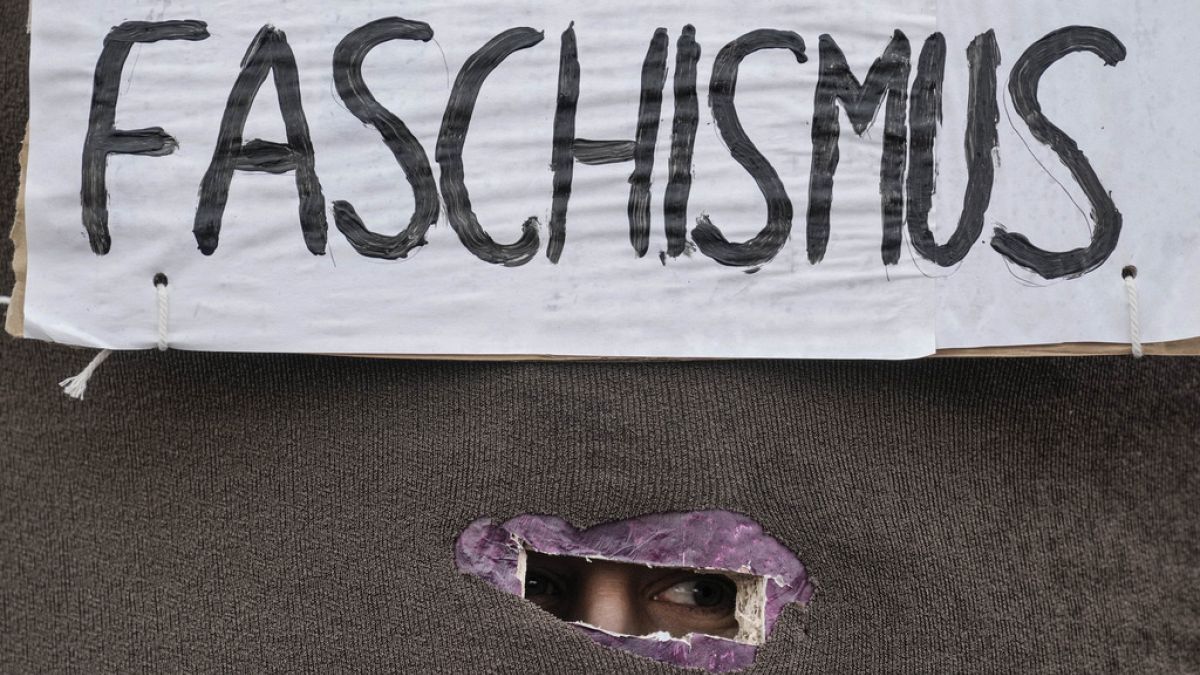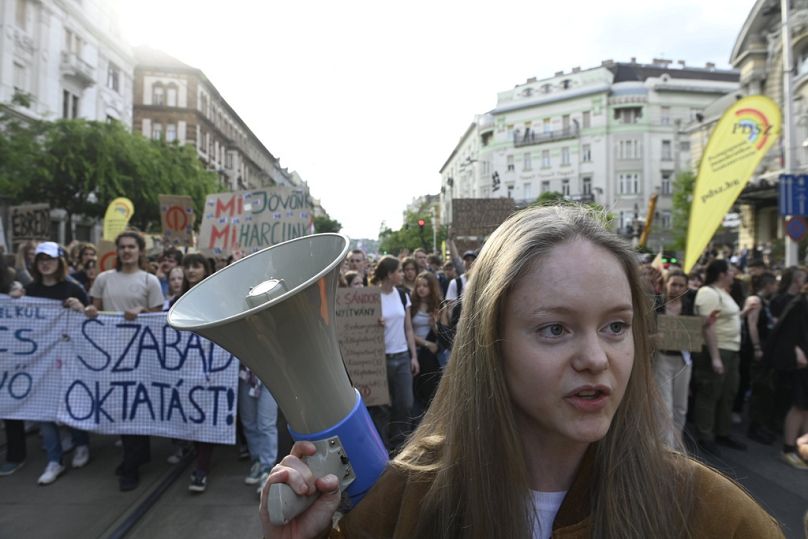Right-wing populist movements have gained significant traction across Europe in recent years, reshaping political landscapes and challenging established norms. These regimes wield considerable influence over economic policies and strategies, but do they share an economic outlook?
In order to understand how right-wing populism - often characterised by nationalist rhetoric, anti-immigration policies, and protectionist tendencies - might view the economic system as a whole, it's important to understand its political roots.
In the current political discourse, the term populist immediately signals an anti-establishment inclination and if by establishment we presume the liberal parliamentary democracies of Europe, then the populist narrative must by definition criticise the current order.
As Branislav Slantchev, a Professor at the University of California San Diego, summarised for Euronews: "Populism always pits 'the people' against some nebulous 'elites' and so can utilise all sorts of economic ideas depending on what the grievance or the 'enemy' is defined as." This means that there isn't a kind of coordinated populist International with a linked economic strategy.
Populist movements thrive when opposing liberal policies
However, in the context of Western Europe in the 21st century, having a common foe in terms of a free-market economy, welfare subsidies, immigration systems aimed at attracting foreign workforce and liberal democracy points to separate, but similar, populist movements which oppose the status quo. As Slantchev added: "Populism is implacably opposed to liberal policies in principle, and so the pattern of economic growth is going to reflect that."
In post-communist Europe, where populist regimes have in certain places, such as Hungary or Serbia, already taken root, the common foe differs from the one in the established democracies and developed economies of the western part of the continent. Đorđe Trikoš, strategic communications consultant and the co-founder of "Libek" think tank, explains for Euronews that "unreformed, post-socialist economies, make populism in their respective countries more likely, and populism in itself is less likely to survive with economic liberalisation".
As such, one general explanation for the success of populist movements in post-communist Europe can be uncompleted liberal economic reforms, which were subverted during the liberal or social-democratic administrations which preceded their populist competitors.
If we take a closer look on some of the long-term populist regimes of post-communist Europe, a few commonalities come into view. Orban's Hungary and Vučić's Serbia both share open economies, heavily oriented towards attracting foreign direct investments, while constructing a clientelist socio-political order to support their continued rule.
András Tóth-Czifra, Fellow in the Eurasia Program at the Foreign Policy Research Institute, provides a detailed explanation for Euronews on Hungary's economic system under populist rule: "The government's policies, though they undoubtedly generated economic growth over the past 14 years if one looks at GDP figures, have kneecapped Hungary's economic perspectives in the longer term. This is economic growth based on cheap labour, cheap energy, a degradation of labour rights, and a small number of grand export-oriented investment projects, which often receive political support, rather than on knowledge-intensive industries and domestic consumption.
If we compare the previous statement with Trikoš’s one on the current Serbian economic model, a clear pattern emerges: "The Serbian economy is based on rent-seeking, subsidised jobs without much organic development, and show-off investment projects that signal strength but bring no real value to society."
Hungary and Serbia go against the populist trend
Both Hungary and Serbia have enjoyed steady, if not remarkable, economic growth under their respective populist regimes and haven't turned to the supposed protectionist model. Dušan Pavlović, a Professor at the University of Belgrade, underscores this point for Euronews in the case of Serbia: "The country enjoys steady growth, controlled inflation, and balanced public finances, with a budget deficit of just 2.2% of GDP and public debt under 60% of GDP. Moreover, Serbia's relationship with the IMF, likely to be extended beyond September 2024, underscores macroeconomic stability."
This certainly differs from populist movements in Western Europe, which ordinarily prefer protectionist measures, at least to a certain extent. On the other hand, populist regimes in Hungary and Serbia have failed to translate economic growth to raising the standard of life for the majority of their citizens, as the growth itself is based upon a mixed model of government subsidies for foreign investors and disenfranchising the local workforce.
One of the factors contributing to stifling economic growth under populist rule is systemic corruption, which is an intentional product of constructing a system of political loyalty through providing economic gain or favourable market positions to capitalist actors devoted to the regime.
Tóth-Czifra puts this into perspective on Hungary's example: "One of the stated goals of Orban's government was to create a domestic capitalist class; this goal was achieved, in a way, by enriching politically connected business actors through state orders and EU funds, as well as by involving them in foreign investment deals facilitated by the government."
Trikoš provides an assessment that: "systemic corruption is the primary explanation for the strength of populism in Serbia", while Pavlović adds that: "The Serbian incumbent appears to have found a clientelist formula to tolerate certain levels of corruption as long as it does not obstruct economic progress."
Turkey benefits from a change in policy
Cross-referencing the data from Hungary's and Serbia's populist regime economic results with the case of Turkey, conclusions might be drawn on the question whether a populist regime must at all times adhere to a consistent economic strategy. Timothy Ash, an Associate Fellow in the Russia and Eurasia programme at Chatham House, underscores for Euronews the fact that Erdogan's populist regime has made a fundamental change in its, previously ideological, low interest rates central bank policy: "The 180-degree turnaround since last May's elections and now better policy trends in Turkey - a return to orthodoxy."
This is an important claim, as it demonstrates how populist regimes construct economic and financial models based on necessity if an economic crisis threatens political stability, which may in certain cases contradict their own political narratives. Having said that, right-wing populist regimes do demonstrate a tendency to create a corruptive and cronyist socio-economic structures, in order to prolongate their stay in power indefinitely, even if not dismantling both the fundamental rules of the democratic system and that of the free-market economy.
In conclusion, while populist regimes are ideologically opposed to liberal democracy, they are not obliged to implement protectionist economic strategies. All populist regimes, nonetheless, shape their economic and political model in a way which stimulates grand corruption and ultimately disenfranchises the people, whom the populists have came into power to protect from the, supposedly wicked, elites.
Moreover, long-term economic growth can be negatively impacted by stated populists' policies, as they limit diversification, innovation and free enterprise, especially in the areas of small and midsize business.




